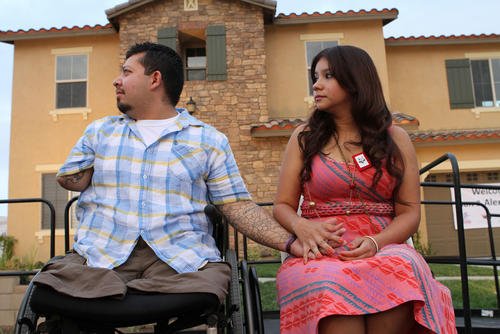Note: The author is neither a lawyer nor a special needs expert. This information is for informational purposes and to point you in the right direction. You need to do your own research and figure out what is right for your specific situation.
Retired military who have elected the Survivor Benefit Plan (SBP) to provide benefits to incapacitated adult child must consider whether they want to direct those benefits to a special needs trust.
One feature of the military's Survivor Benefit Plan is the ability to assign benefits to a child, including an incapacitated adult child who has been designated a Secondary Dependent via your branch's process. Electing SBP to cover your incapacitated child can provide income to that child after the death of the service member. But that income could make them ineligible for certain income- and asset-based government programs. A special needs trust can shield the SBP benefit from being counted as income or an asset.
What Is the Survivor Benefit Plan?
The military's SBP is a premium-based annuity that provides a continuation of income to the designated survivors of military retirees. At retirement, the retiree and their spouse elects or declines SBP coverage for a spouse/former spouse and/or eligible children. (There's also an "insurable interest" category, but that has nothing to do with this article.)
The retiree and their spouse may cover all of military retirement pay or just a portion, depending on their needs. SBP has a cost of 6.5% of the covered amount of military retirement pay for spouse coverage. Child-only coverage is a lower cost, and adding a child/children to spouse coverage typically costs only a few dollars a month.
SBP pays 55% of the covered retirement pay to the primary survivor. The primary survivor may be the spouse/former spouse or, if child-only coverage is elected, the primary survivor(s) is the child. When spouse/former spouse and child coverage is elected, the spouse would receive the benefit first, and the children would receive the benefit if the spouse was no longer eligible due to death or remarriage (before a certain age).
In most cases, children age out of their SBP coverage at age 18, or age 22 if a full-time student. However, incapacitated adult children may remain beneficiaries for their lifetime.
Survivor Benefit Plan and Government Benefit Programs
Many incapacitated adult children are eligible for various federal and state government benefits such as Medicaid and Supplemental Security Income. However, these income- and asset-based benefits could be lost if the adult child receives SBP payments. A 2015 law allows SBP payments to go into a special needs trust that is not counted toward government benefits eligibility.
Special Needs Trusts
A special needs trust is one that holds money to be used for the benefit of a special needs person. These trusts are usually designed so that they aren't counted as income or assets for purposes of government benefit eligibility.
There are two main types of special needs trusts: first-party special needs trusts, also called self-funded special needs trusts, and third-party special needs trusts, also called family-funded special needs trusts. There are slightly different laws and rules around the type of types of trusts.
SBP benefits must be placed into a first-party special needs trust because the benefit is going to the incapacitated adult child and being directed to the trust.
Setting Up a Special Needs Trust
There are several ways to set up a special needs trust. You can set up a special needs trust through a professional who handles special needs accounts. Alternatively, many families choose to participate in a "pooled" trust. A pooled trust is where many people join the trust, and the money within the trust is managed by a professional trustee.
To imagine this, think of your Thrift Savings Plan account. Everyone with a TSP account puts their money into TSP, and it is administered by the TSP Board. Individual account balances are kept separate, and the owner can designate how they want the money invested (or not invested).
Pooled trusts are often organized by community foundations or special needs organizations like the Red Cross. An organization that organizes a pooled special needs trust usually has a relationship with a lawyer and prepares trust documents to make it easier to set up the trust.
Setting up a trust may cost several hundred to several thousand dollars. There may be a discount if you set up both a first-party and third-party special needs trust at the same time. There is usually a small ongoing fee to have the trust open, though that may be waived if you maintain a balance in the account.
Once you've set up a special needs trust for your incapacitated adult child, you should notify the Defense Finance and Accounting Service (DFAS) about the trust to ensure that any benefits are paid appropriately.
If you have an incapacitated adult child who may receive SBP benefits, a special needs trust may be an important part of your estate plan. Talk to your estate planning professional to find out if this is something you need.
Get the Latest Financial Tips
Whether you're trying to balance your budget, build up your credit, select a good life insurance program or are gearing up for a home purchase, Military.com has you covered. Subscribe to Military.com and get the latest military benefit updates and tips delivered straight to your inbox.











